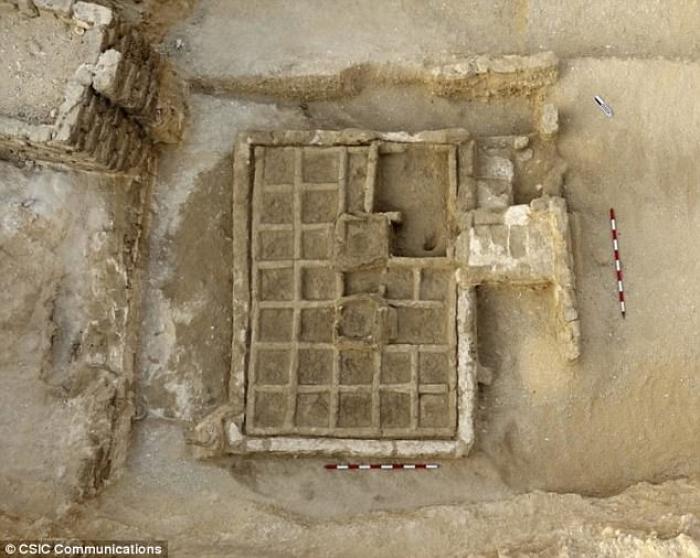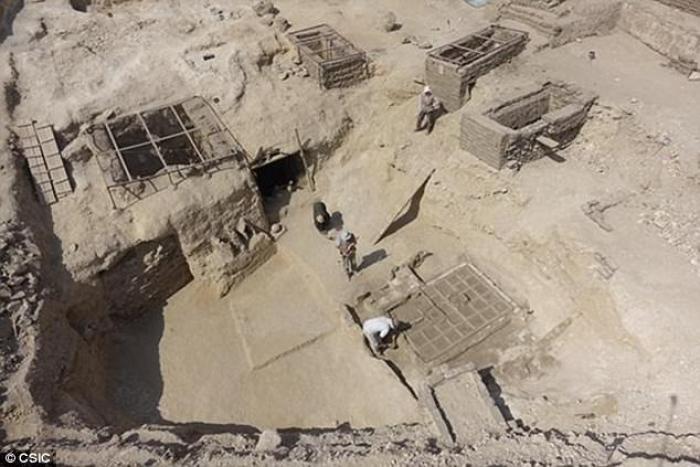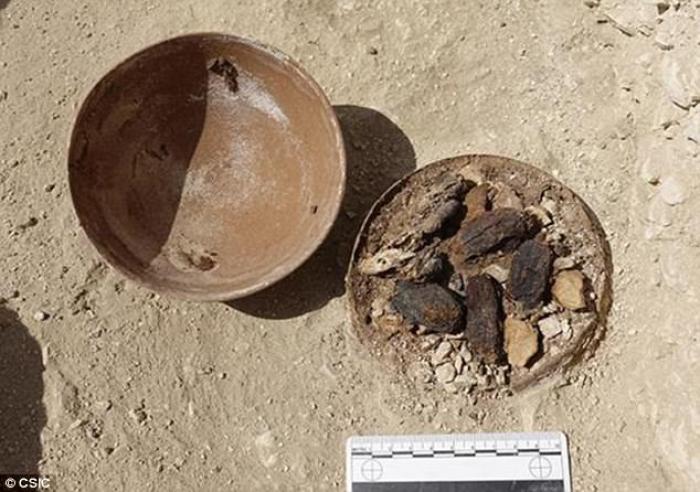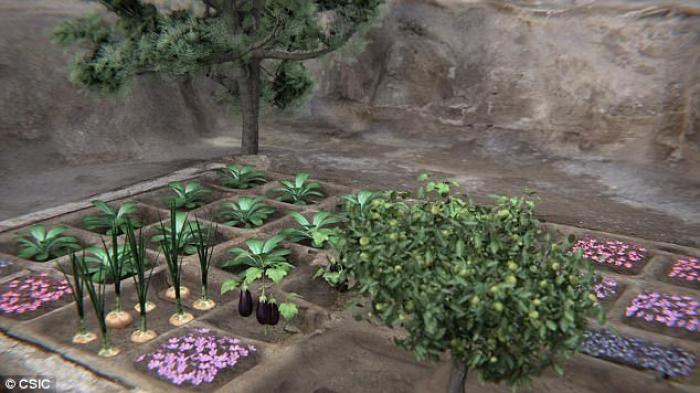We ask you, urgently: don't scroll past this
Dear readers, Catholic Online was de-platformed by Shopify for our pro-life beliefs. They shut down our Catholic Online, Catholic Online School, Prayer Candles, and Catholic Online Learning Resources essential faith tools serving over 1.4 million students and millions of families worldwide. Our founders, now in their 70's, just gave their entire life savings to protect this mission. But fewer than 2% of readers donate. If everyone gave just $5, the cost of a coffee, we could rebuild stronger and keep Catholic education free for all. Stand with us in faith. Thank you.Help Now >
What did Egyptian zombies eat? A new discovery provides clues
FREE Catholic Classes
Archaeologists have discovered the first ever example of an Egyptian funerary garden. The existence of such gardens has long been suspected, but the find in Luxor is the first real example.

The Egyptians believed their dead would arise and look for food...
Highlights
CALIFORNIA NETWORK (https://www.youtube.com/c/californianetwork)
5/5/2017 (7 years ago)
Published in Africa
Keywords: funerary garden, Egypt, Luxor, Thebes, food, eat, offering, religion, gods
LOS ANGELES, CA (California Network) -- Archaeologists have known about funerary gardens for a long time. They have seen depictions of them at the entrances to tombs. However, no example of such a garden had ever been found until now.
Archaeologists digging in Luxor, Egypt, have uncovered their first genuine funerary garden. Laid out in a grid, the garden is thought to have been planted with a variety of symbolic plants. In addition to the planets, a bowl of fruits including dates was also found at the site, likely left as an offering.
The ancient Egyptians believed their dead would live again and took great pains to preserve and prepare their bodies for burial. They also left offerings so the deceased would not go hungry in the afterlife. It is likely that the gardens were planted with food offerings so the deceased would have something to eat, and possibly flowers and a shade tree.
The garden is now being excavated to determine exactly was planted in it. For the Egyptians, various plants had symbolic meanings. If it can be ascertained which kinds were planted, it will provide important insight into ancient Egyptian beliefs and rituals.
The garden dates back to about 2,000 years B.C., and was likely built during a time when Thebes (now Luxor) became the capital of the Egyptian civilization.

The garden is laid out in a grid with plants and shrubs planted to sustain the deceased in the afterlife.

The garden is outside several tombs at the Luxor site.

A bowl of fruit, including dates was left at the garden as an offering.

How the garden may have appeared.
---
The California Network is the Next Wave in delivery of information and entertainment on pop culture, social trends, lifestyle, entertainment, news, politics and economics. We are hyper-focused on one audience, YOU, the connected generation. JOIN US AS WE REDEFINE AND REVOLUTIONIZE THE EVER-CHANGING MEDIA LANDSCAPE.
Join the Movement
When you sign up below, you don't just join an email list - you're joining an entire movement for Free world class Catholic education.

-

- Stations of the Cross
- Easter / Lent
- 5 Lenten Prayers
- Ash Wednesday
- Living Lent
- 7 Morning Prayers
- Mysteries of the Rosary
- Litany of the Bl. Virgin Mary
- Popular Saints
- Popular Prayers
- Female Saints
- Saint Feast Days by Month
- Pray the Rosary
Massive Egg Recall Highlights the Dangers of Centralized Food Systems: Why We Need Local Solutions
Pope Francis Advances Five Causes for Sainthood
Finding Strength in Faith During Job Market Uncertainty
Daily Catholic
 Daily Readings for Tuesday, April 01, 2025
Daily Readings for Tuesday, April 01, 2025 St. Hugh of Grenoble: Saint of the Day for Tuesday, April 01, 2025
St. Hugh of Grenoble: Saint of the Day for Tuesday, April 01, 2025 Prayer for God's Help in Daily Actions: Prayer of the Day for Friday, March 14, 2025
Prayer for God's Help in Daily Actions: Prayer of the Day for Friday, March 14, 2025 Daily Readings for Monday, March 31, 2025
Daily Readings for Monday, March 31, 2025 St. Benjamin: Saint of the Day for Monday, March 31, 2025
St. Benjamin: Saint of the Day for Monday, March 31, 2025- To Perceive Animals as God's Gifts: Prayer of the Day for Thursday, March 13, 2025
![]()
Copyright 2025 Catholic Online. All materials contained on this site, whether written, audible or visual are the exclusive property of Catholic Online and are protected under U.S. and International copyright laws, © Copyright 2025 Catholic Online. Any unauthorized use, without prior written consent of Catholic Online is strictly forbidden and prohibited.
Catholic Online is a Project of Your Catholic Voice Foundation, a Not-for-Profit Corporation. Your Catholic Voice Foundation has been granted a recognition of tax exemption under Section 501(c)(3) of the Internal Revenue Code. Federal Tax Identification Number: 81-0596847. Your gift is tax-deductible as allowed by law.

 Daily Readings for Tuesday, April 01, 2025
Daily Readings for Tuesday, April 01, 2025 St. Hugh of Grenoble: Saint of the Day for Tuesday, April 01, 2025
St. Hugh of Grenoble: Saint of the Day for Tuesday, April 01, 2025 Prayer for God's Help in Daily Actions: Prayer of the Day for Friday, March 14, 2025
Prayer for God's Help in Daily Actions: Prayer of the Day for Friday, March 14, 2025 St. Benjamin: Saint of the Day for Monday, March 31, 2025
St. Benjamin: Saint of the Day for Monday, March 31, 2025

